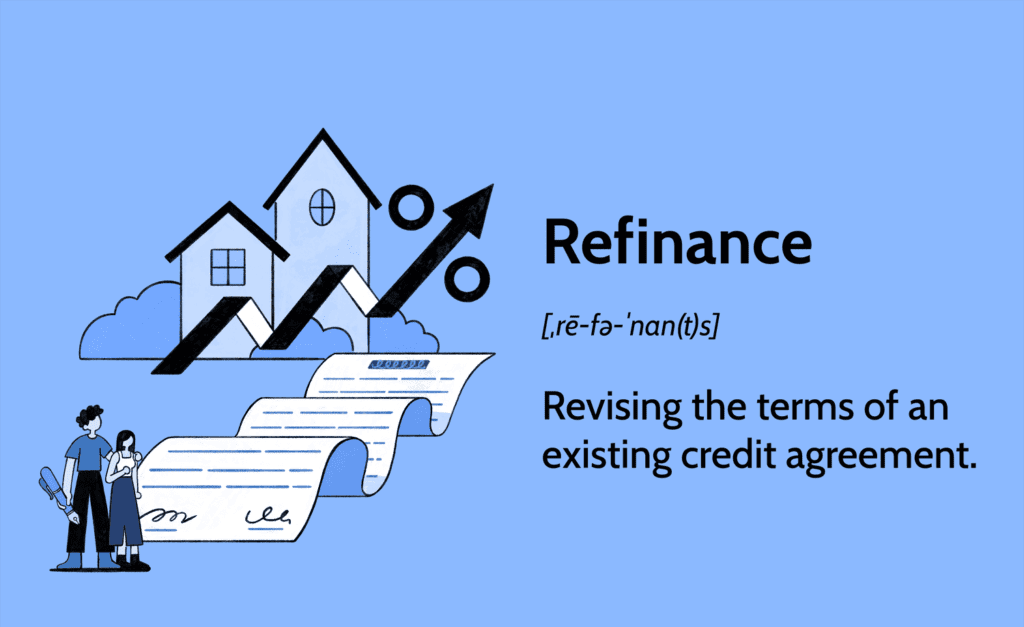Owning a home or renting an apartment is becoming increasingly expensive. Reduce housing costs by implementing money-saving tips for homeowners and renters. Housing prices have risen steadily over the past decade, putting financial strain on many households. However, there are proven ways for both homeowners and renters to reduce housing costs. This article outlines actionable tips that can lead to significant savings over time.
Tips for Homeowners to Save Money
Homeowners have a few more options to lower costs than renters. Here are three impactful ways homeowners can reduce their housing expenses:
1. Refinance Your Mortgage to a Lower Interest Rate
With interest rates reaching all-time lows over the past couple of years, now is an ideal time for homeowners to refinance their mortgages. By refinancing your home loan to a lower interest rate, you can substantially reduce monthly payments and lifetime interest costs.
Run the numbers to see current potential savings by inputting your details into a refinance calculator. On a $250,000 mortgage at 4.5%, lowering your rate by just 1% would equal over $12,000 in interest savings per year.
Be sure to compare closing costs with projected long-term savings when assessing refinancing options. Securing a 0.5-1% rate drop is generally worthwhile.

2. Appeal Your Property Tax Assessment
The assessed value of your home directly impacts annual property tax bills. With home values rising rapidly in recent years, so have property taxes around the country. Thankfully, homeowners can appeal their assessment if they believe it does not accurately reflect current market value.
Data shows homeowners have a 50-80% success rate when challenging inflated assessments. If your home value is overstated by just 10%, you could save hundreds per year by filing an appeal.
Be prepared to provide documentation such as comparable home sales, inspection reports detailing flaws unaccounted for, and proof of declining neighborhood conditions. Utilize online property tax tools to build your case for an assessment reduction.
3. Complete Home Improvements That Reduce Utilities
Investing in select home improvements can pay dividends for years through lower utility bills. Upgrades like additional insulation, energy-efficient windows and doors, and LED lighting can drastically reduce electricity costs.
Completing ductwork sealing for central air leakage achieves similar savings by optimizing cooling efficiency. Rebate programs through energy providers and state governments help offset upfront costs for these energy-saving home improvements as well.
Calculate ROIs on potential upgrades using Department of Energy calculators that factor in utility rates, efficiency gains, and more.
Money-Saving Tips for Renters
While renters lack control over variables impacting some homeowner costs, apartment dwellers still have options to reduce housing expenses. If you rent, consider these three proven ways to spend less each month on housing:
1. Negotiate Rent Prices With Landlord
Many renters automatically renew leases without trying to negotiate a lower rent with their landlord or management company. However, landlords often agree to reduce rents by $50-200 per month to retain good tenants and avoid turnover costs.
Securing just a 5% rent drop on a $2,000 apartment equals $1,200 in annual savings. Time lease renewal requests when occupancy rates in your area are lower and favor renters. Present comparable units at lower rents and be willing to sign a longer lease term to increase appeal.
2. Take on a Roommate to Split Rents
Adding a roommate splits housing costs with virtually no extra burden on tenants. Those with an extra bedroom can charge $400-800 per month. Even renting out just a living room corner nets an average of $250-500.
Set clear expectations upfront covering issues like cleaning duties, visitors, noise levels, and security deposits. Sharing an apartment with someone you know well tends to work best. Utilize roommate matching services to find compatible candidates otherwise.
3. Relocate to a More Affordable Area
Sometimes scoring cheaper rent means moving to a lower-cost neighborhood or city. Identify reasonably priced areas then research variables like transportation expenses, amenities, and crime rates when comparing options.
Use rental listing sites and pricing tools to analyze rents regionally. Expand your neighborhood search radius just 5-10 miles further to uncover hidden rental deals. Set up custom alerts to be notified of new listings meeting your criteria.

Implement These Creative Ways to Reduce Housing Costs
Housing may be getting more expensive but homeowners and renters alike have options to control costs. For homeowners, refinancing mortgages to lower rates, appealing inflated property tax assessments, and completing utility-reducing home improvements can all add up to substantial savings each year. Renters should negotiate lease renewals, take on roommates, and compare neighborhood pricing when aiming to lower housing expenses as well.
What other creative ideas or tips do you have for reducing monthly housing costs? Share your ideas and first-hand savings success stories in the comments below!









